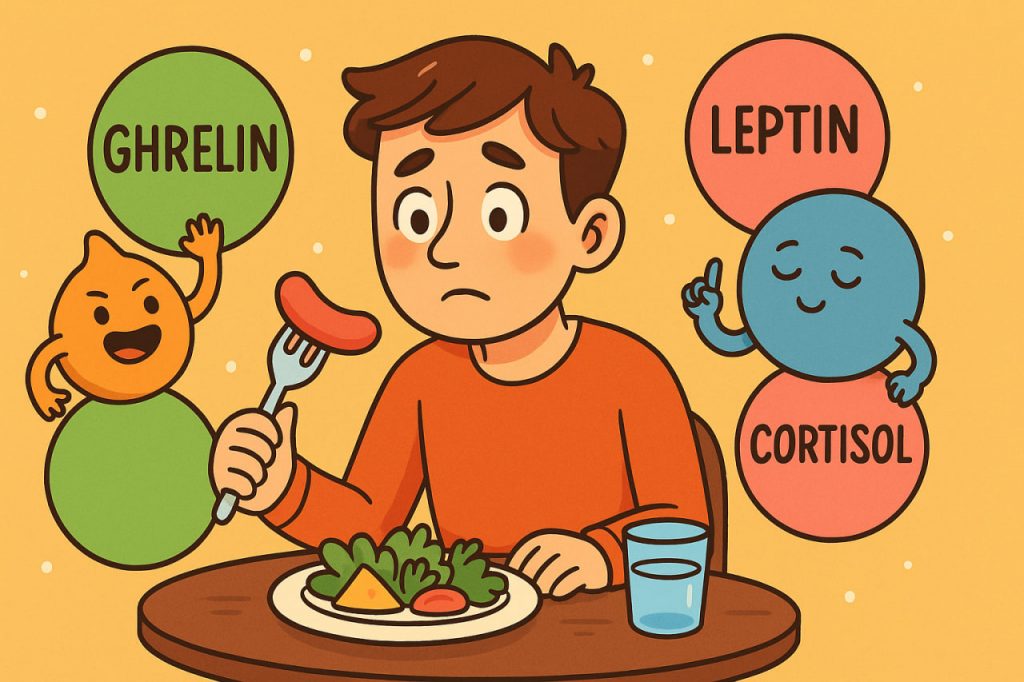Appetite is not controlled by willpower alone—it is strongly regulated by hormones, the body’s chemical messengers. These substances send signals between the brain, stomach, fat tissue, and other organs, determining when we feel hungry or full. Understanding how hormones affect appetite helps explain why maintaining a healthy weight can be difficult and why hormonal imbalances often lead to overeating or loss of appetite.
The Key Hormones Regulating Appetite
- Ghrelin – the hunger hormone
Produced mainly in the stomach, ghrelin rises before meals, stimulating appetite, and decreases after eating. High ghrelin levels make it hard to resist food, especially calorie-dense meals. - Leptin – the satiety hormone
Secreted by fat cells, leptin tells the brain that the body has enough energy stored. In healthy individuals, it reduces hunger. However, in obesity, the body can develop “leptin resistance,” meaning the brain no longer responds properly, leading to overeating. - Insulin
Released by the pancreas after eating, insulin helps regulate blood sugar and also signals fullness. Chronic overeating can lead to insulin resistance, which disrupts appetite control and contributes to weight gain. - Cortisol – the stress hormone
High levels of cortisol increase cravings for sugary and fatty foods. Chronic stress often leads to emotional eating, which can override natural hunger signals. - Peptide YY (PYY) and GLP-1
These gut hormones are released after meals and promote feelings of fullness. They play a major role in slowing digestion and reducing further food intake.
Hormonal Imbalances and Appetite Disorders
When the delicate balance between these hormones is disturbed, appetite regulation breaks down. This can result in:
- Constant hunger despite eating enough (high ghrelin or leptin resistance).
- Loss of appetite due to low ghrelin or high stress.
- Cravings for unhealthy foods driven by cortisol spikes.
- Disrupted eating patterns in conditions like diabetes or thyroid disorders.
Lifestyle Factors That Support Hormonal Balance
- Regular meals help stabilize blood sugar and prevent hormonal spikes.
- Protein- and fiber-rich diets promote satiety hormones like PYY and GLP-1.
- Quality sleep reduces ghrelin and balances leptin.
- Stress management lowers cortisol and reduces emotional eating.
- Physical activity improves insulin sensitivity and supports appetite regulation.
Conclusion
Hormones are the hidden drivers behind hunger and satiety. While ghrelin, leptin, insulin, cortisol, and gut hormones work together to regulate appetite, lifestyle factors strongly influence how effective they are. A balanced diet, good sleep, stress control, and regular activity are the best ways to keep hormones—and appetite—under control.
Glossary
- Ghrelin – the hormone that stimulates hunger.
- Leptin – the hormone that signals fullness.
- Insulin – regulates blood sugar and affects appetite.
- Cortisol – stress hormone that increases food cravings.
- Peptide YY (PYY) – gut hormone that reduces appetite after eating.


